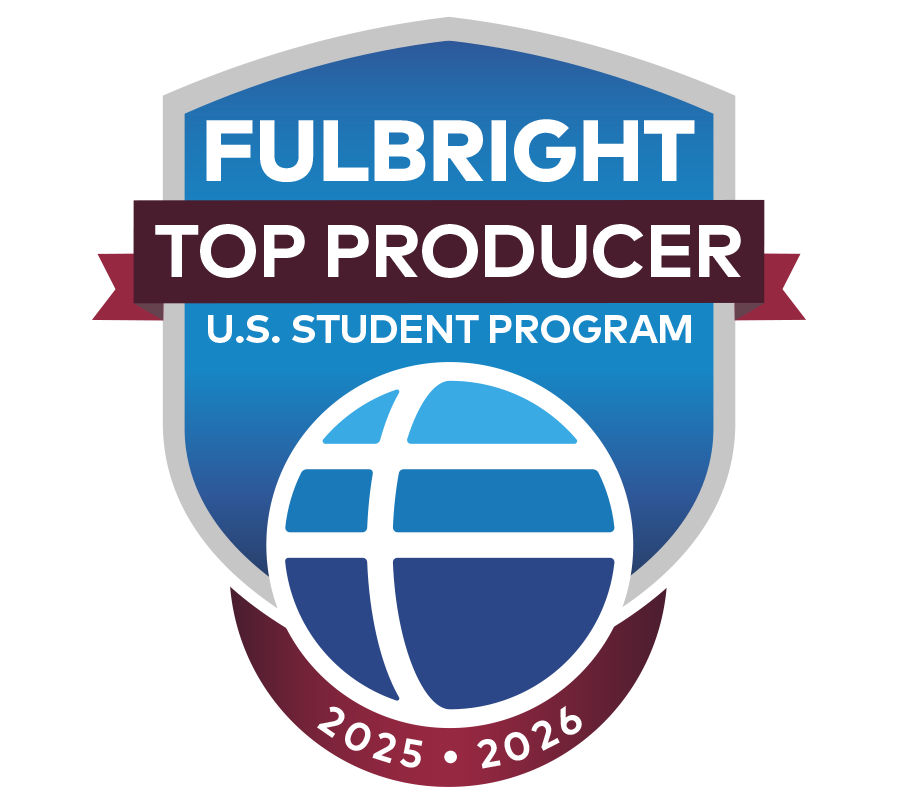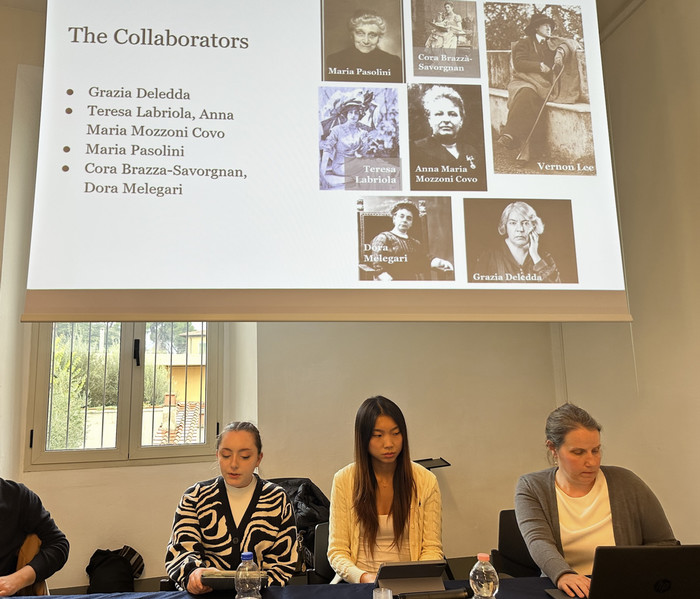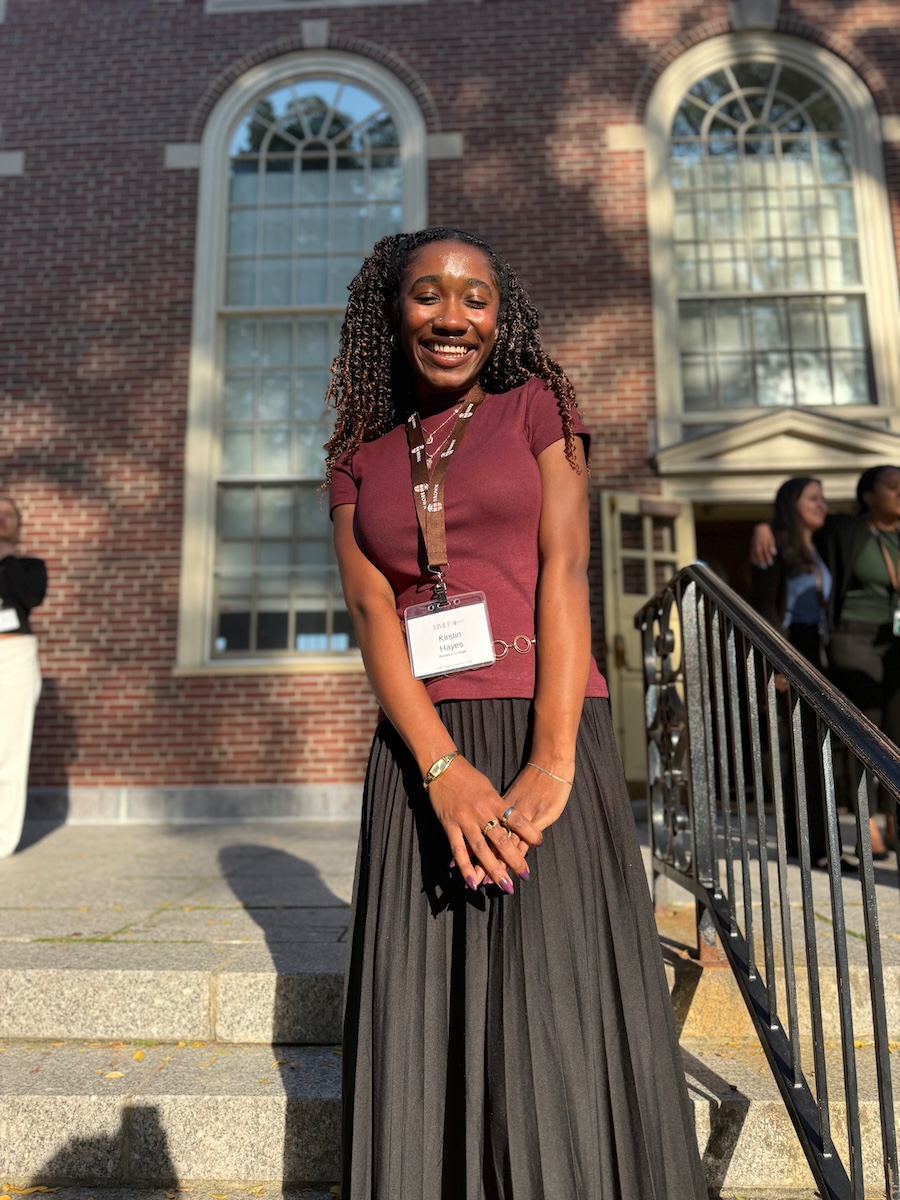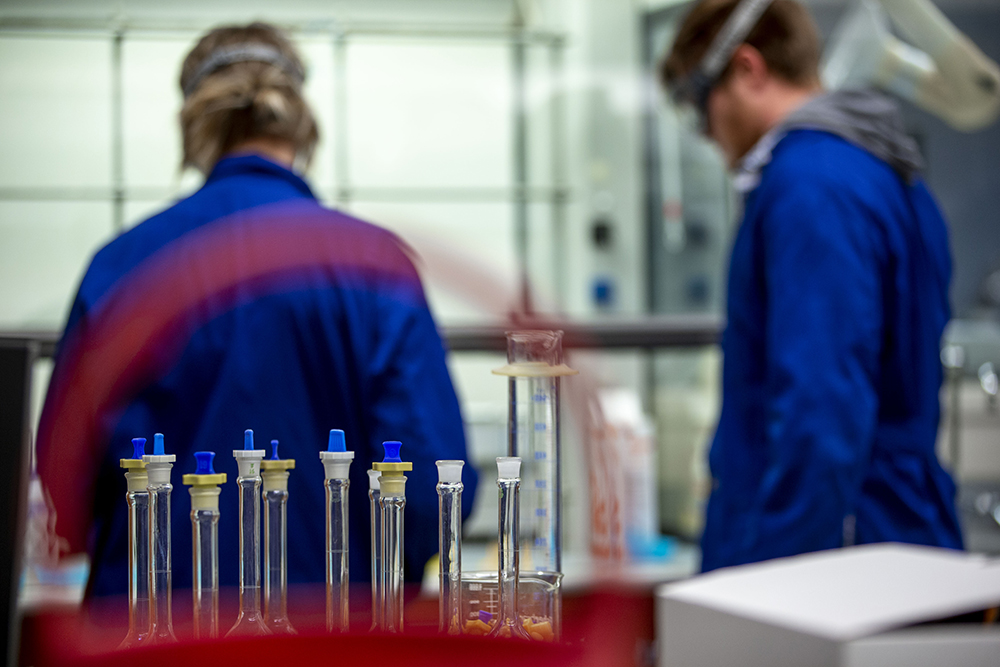Kellie Navarro ’23 Wins Two Major Science Scholarships
By Jane Godiner ’23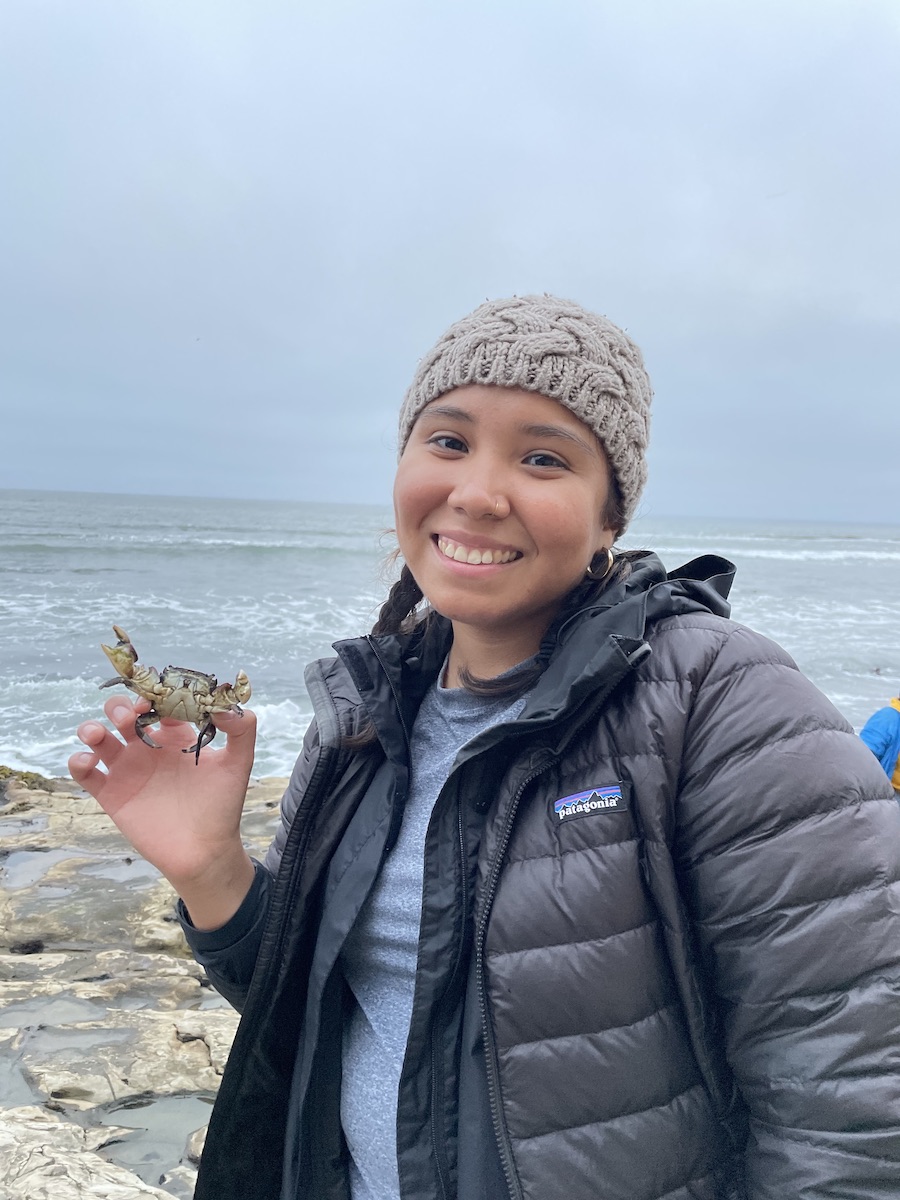
Earlier in the spring, Navarro learned she was one of four juniors to receive a Goldwater Scholarship, which provides college sophomores and juniors who show promise in the natural sciences, engineering, and math with up to $7,500 in undergraduate tuition support.
Then she learned she would also be receiving a Udall Undergraduate Scholarship. The Udall Foundation awards scholarships up to $7,000 to sophomores and juniors who show leadership, public service, and commitment to Native American or environmental issues.
The last student to win both the Goldwater and the Udall was Margaret Lindeman ’15.
“I am so pleased that Kellie is the recipient of two such prestigious awards,” said Eileen Johnson, a lecturer and program manager for the environmental studies department. “Kellie is inspiring in how she has created opportunities to share her passion for marine biology with others here in campus, as well as in local schools. I look forward to seeing the amazing things she will be doing in her chosen career.”
Studying Climate Change and Opening Up the Field to More Students
“I’m interested in marine biology and using molecular techniques to combat climate change impacts on marine ecosystems,” Navarro said in a recent interview. “I'm also really interested in using research to inform policy and increase access to the field for underrepresented students.”
Navarro's fascination with marine biology—and with the life sciences, in general—has been present ever since she was young.
“I was always super interested in the ocean,” she said. “Since I grew up in an urban area (Passaic, New Jersey), I didn't really have access to the outdoors, but I always urged my family to go to the beach and aquariums. I also loved watching incredible scientists on TV exploring marine life, from charismatic megafauna to otherworldly deep-sea creatures.”
When Navarro graduated middle school, she became part of a community-based organization called SEEDS —Access Changes Everything that helps low-income students attend selective high schools or colleges. It brought her closer to her aspirations: she was accepted into Tabor Academy, a high school in Marion, Massachusetts, that focuses on marine science.
“It was really cool because, as a student from Passaic, I didn’t have much access to environmental education. Tabor Academy gave me the opportunity to really immerse myself in marine science in high school, which is super early,” Navarro said.
By the time Navarro began studying at Bowdoin, she was even more convinced about her academic direction. Along with marine biology, she is also committed to teaching, and has reached out in particular to students of color and low-income students.
“I've always loved engaging in environmental education—in high school, I started a program my sophomore year where I would bring in low-income students of color from the local community to learn about marine science at my high school,” Navarro said. “I also created a marine education program here at Bowdoin for local elementary school students.”
At Bowdoin, she has continued to serve underrepresented communities and give them access to opportunities. She is currently employed by the College's Center for Multicultural Life and the THRIVE office, and she will serve as the vice president of the Bowdoin Latin American Student Organization (LASO) next year.
“It's been super important for me to be able to do research and also do this other work making Bowdoin an inclusive space for people who had similar experiences as me and who didn't necessarily have easy access to the sciences,” she said.
Navarro said she will use both her Goldwater and Udall scholarships to deepen her education in the marine sciences and pick up new skills. “This summer, I'm going to be using some of the scholarship money to get my scientific SCUBA diving certification,” she said. “That will give me a lot more opportunities to do research I’m interested in.”
